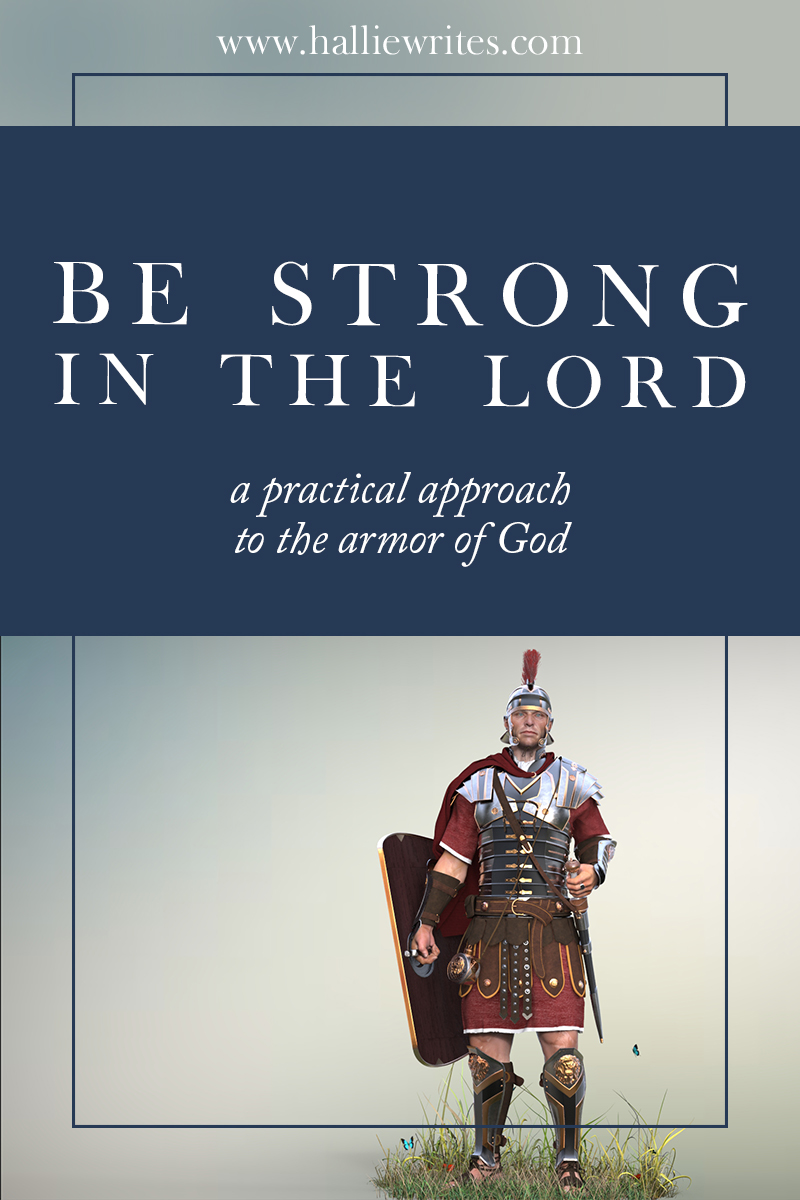Jude 8-16 - a call to discernment
/Last week we studied the first seven verses in Jude - his call to vigilance to all believers, a plea to "contend earnestly for the faith" in light of the enemy's sneaking deceptions. Today, we continue into verses 8-16 - this time, a call to the discernment that we will so desperately need if we are to hold the line that divides truth from falsehood.
A study in Jude - part two
“Yet in the same way these men, also by dreaming, defile the flesh, and reject authority, and revile angelic majesties. But Michael the archangel, when he disputed with the devil and argued about the body of Moses, did not dare pronounce against him a railing judgment, but said, “The Lord rebuke you!” But these men revile the things which they do not understand; and the things which they know by instinct, like unreasoning animals, by these things they are destroyed. Woe to them! For they have gone the way of Cain, and for pay they have rushed headlong into the error of Balaam, and perished in the rebellion of Korah. These are the men who are hidden reefs in your love feasts when they feast with you without fear, caring for themselves; clouds without water, carried along by winds; autumn trees without fruit, doubly dead, uprooted; wild waves of the sea, casting up their own shame like foam; wandering stars, for whom the black darkness has been reserved forever.
It was also about these men that Enoch, in the seventh generation from Adam, prophesied, saying, “Behold, the Lord came with many thousands of His holy ones, to execute judgment upon all, and to convict all the ungodly of all their ungodly deeds which they have done in an ungodly way, and of all the harsh things which ungodly sinners have spoken against Him.” These are grumblers, finding fault, following after their own lusts; they speak arrogantly, flattering people for the sake of gaining an advantage.”
Identifying "these men"
We must come into these verses fresh from the seven that precede them - the ones we studied last week - because of two key phrases: "in the same way" and "these men."
In the same way - as what? Jude is referring back to verses 5-7, in which he reminded us of the historic consequences of disobedience and unbelief. The lies we are called to watch for and discern are of the same breed as the blasphemy of the Egyptians, the rebellion of the angels, and the perversion of Sodom and Gomorrah. They are that serious.
And "these men" points back to verse 4: "For certain persons have crept in unnoticed, those who were long beforehand marked out for this condemnation, ungodly persons who turn the grace of our God into licentiousness and deny our only Master and Lord, Jesus Christ."
Within the first seven words of this new paragraph, Jude reminds us again of the urgency of the cause. These men, these "certain persons," are headed for the same destruction, eternal bondage, and eternal fire as some of the most heinous peoples in the Bible - and they are trying to take others with them.
So how, practically, do we discern and identify these men when they are - God forbid - among us?
They are arrogant
Yet in the same way these men, also by dreaming, defile the flesh, and reject authority, and revile angelic majesties.
By dreaming: This is not nighttime dreaming or even daydreaming, but a reference to their trust in their own personal "revelations." They follow their own minds, even when they lead far away from the standards of holiness.
Defile the flesh: Both physically and morally, they literally "pollute" or "stain" themselves as a direct result of the licentiousness they claim as God's grace. They have made up their own rules about what grace is and what good is.
Reject authority: Just as it sounds, and just as Jude said earlier: they deny the Lordship and Mastery of Jesus Christ, along with His chosen leaders in the church. They think they know better.
Revile angelic majesties: Even the truly sacred and holy things, beings that they cannot even begin to understand, they profane and pretend to have authority over.
We will know them by their arrogance. They will not submit to the Lordship of Christ or the leadership of the church or the authority of Scripture; instead they will follow their own minds, feelings, and "rights." In their self-aggrandizement they will try to speak things even Michael the Archangel would not dare to speak outside of the authority given to him by God!
They are beyond reason
... The things which they know by instinct, like unreasoning animals, by these things they will be destroyed. Woe to them! For they have gone the way of Cain, and for pay they have rushed headlong into the error of Balaam, and perished in the rebellion of Korah.
Have you ever watched, brokenhearted, while an animal destroyed itself by its own instincts? I remember a bird whose toe was caught in a wire on the fenceline when I was a kid. I could have helped it get free, but its instincts said that I was a predator, and so it struggled so hard to escape me that it broke its leg beyond repair. Eventually it did fly free, but whether it was able to survive with such a handicap, I don't know.
These deceivers are like that bird. They follow their own feelings to the point of total lack of reason. Their actions and choices clearly point to destruction, but they - and often the ones they deceive - are too blind to see it.
They have gone the way of Cain: Cain lost control of himself by letting his anger and bitterness rule over him, and it led to the tragic murder of his own brother and a life of exile for himself (Genesis 4).
For pay they rush headlong into the error of Balaam: Balaam was a prophet who tried to get away with disobedience for personal benefit. He let his sinful desires control him and as a result, he became a pawn of the enemy (Numbers 22).
And perished in the rebellion of Korah: Korah, a Levite in the days of Moses, self-importantly tried to redefine God's values for the leadership of Israel. He blindly followed his desire for authority and renown in spite of what he knew of God's holiness, and God allowed the earth to swallow him up (Numbers 16).
We will know them by their distorted thinking. They will not submit their instincts to the ultimate authority of our Master, Jesus, for reshaping and redemption. In their delusion they will find their destruction.
They are fruitless
These are the men who are hidden reefs in your love feasts when they feast with you without fear, caring for themselves; clouds without water, carried along by winds; autumn trees without fruit, doubly dead, uprooted; wild waves of the sea, casting up their own shame like foam; wandering stars, for whom the black darkness has been reserved forever.
The descriptions Jude has given us so far make these deceivers sound terribly obvious. Wouldn't someone so blatantly arrogant and unreasoning stick out like a sore thumb? Not necessarily. They are called hidden reefs in your love feasts - they are among us, they are breaking bread with us, and though the sea looks safe - it isn't. This is why the call to discernment is so vital: we must be able to spot that perilous kind of self-importance that can be hidden, disguised, camouflaged under words and actions that are almost-right.
A third characteristic that will help us spot them, even when their arrogance and delusion are well-hidden, is their fruitlessness.
Clouds without water: A cloud that doesn't produce any rain is useless to the thirsting earth. Deceivers tend to talk a big game and act like they have all the answers, but they leave many hurt, disillusioned, and increasingly needy people in their wakes.
Autumn trees without fruit, doubly dead, uprooted: An autumn tree is useless for fruitbearing because its season has passed, but if it didn't even produce fruit while it had the chance, it's worse than dead - for it has failed to preserve its kind with a next generation of trees. Deceivers are dead and uprooted themselves, but even worse, they are effectively killing the faith for the next generation.
Wild waves of the sea, casting up their own shame like foam: The waves crash and churn restlessly, but achieve nothing more than a little foam - light, empty, a weak result for so much violence. Likewise, deceivers tirelessly pursue their fleshly passions and convictions and the end result is only weakness and shame.
Wandering stars, for whom the black darkness has been reserved forever: More accurately, this refers to planets, which produce no light of their own and wander through the skies in irregular patterns. Deceivers are the same way: they have thrown out the compass of truth, and so there is no way to measure their choices beyond the urging of their own lusts. They don't produce any light with which to guide those around them.
Even if we miss their arrogance and don't notice their delusion, we should have the discernment to know these deceivers by their fruit - or, in Jude's argument, by their fruitlessness. A healthy and God-fearing believer knows the way to the Living Water that truly satisfies, plants seeds of the faith for the next generation, follows the clear direction of God's Word, and shines with the brilliant light of Christ. A deceiver produces only emptiness, confusion, and darkness.
In conclusion
It was also about these men that Enoch, in the seventh generation from Adam, prophesied, saying, “Behold, the Lord came with many thousands of His holy ones, to execute judgment upon all, and to convict all the ungodly of all their ungodly deeds which they have done in an ungodly way, and of all the harsh things which ungodly sinners have spoken against Him.” These are grumblers, finding fault, following after their own lusts; they speak arrogantly, flattering people for the sake of gaining an advantage.
Ultimately, we are called to discern the ungodly from the godly - the condemned from the convicted and the sin-slaves from those who are set free. Sometimes, on the surface, they look alike, but Jude says to watch for the complainers. Watch for the criticizers. Watch for those who follow their own desires and who claim an authority that is not their own and who try to take advantage of other people.
And remember: they are among us, hidden reefs that make the safe-looking sea into a death trap. Souls are at stake. We must be vigilant, and we must be discerning. And we must fight back. Next week, we'll learn how.


















